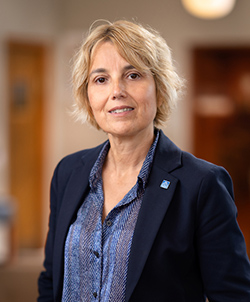The School of Engineering Sciences at KTH is responsible for one of the university’s most prestigious programs: Engineering Physics. Over the years, this program has consistently attracted numerous applications and exceptionally talented students. It remains a cornerstone of our academic offerings, with a solid reputation and a strong academic foundation.
Last week, we had the pleasure of welcoming the class of 1964, who visited us to celebrate their 60-year reunion. It was an inspiring meeting, blending nostalgia with forward-looking reflections. One notable moment during the reunion was meeting the only female student from the class of 1964, who attended the event. This reminds us of the progress we have made, as today around 20% of our Engineering Physics students are women. However, while we’ve seen improvement, there is still much more work to be done to achieve true gender balance.
During their visit, Gunnar Tibert and I presented the current state of the program and the school, highlighting our high international rankings, the diverse specializations offered, and the range of master’s programs available.
Our guests were impressed by the development but also expressed thoughtful concerns about how these significant changes have affected the quality of education (how can “Complex analysis” be an optional course they commented several times).
They were particularly interested in how rapid technological advancements, especially the rise of AI, have influenced the study habits and learning approaches of today’s students.
It became clear from these discussions that we must strike a careful balance between progress and tradition. On one hand, continuous innovation—such as the integration of AI—has opened exciting new opportunities for both students and researchers. These tools allow us to tackle complex problems and prepare students for emerging challenges. However, it is essential not to lose sight of the core values that have always underpinned Engineering Physics, such as critical thinking and deep theoretical understanding.
It is crucial to embrace progress and avoid being locked in the status quo. The world is evolving rapidly, and so must we. However, as we innovate, we must also ensure that we preserve the traditions that foster deep, long-term thinking and intellectual rigor.
In my opinion, the key lies in embracing innovation while maintaining the best of our traditions. This balance will allow us to continue educating future leaders and ensuring that KTH’s Engineering Physics program remains at the forefront of excellence.


No comments yet. Be the first to comment!